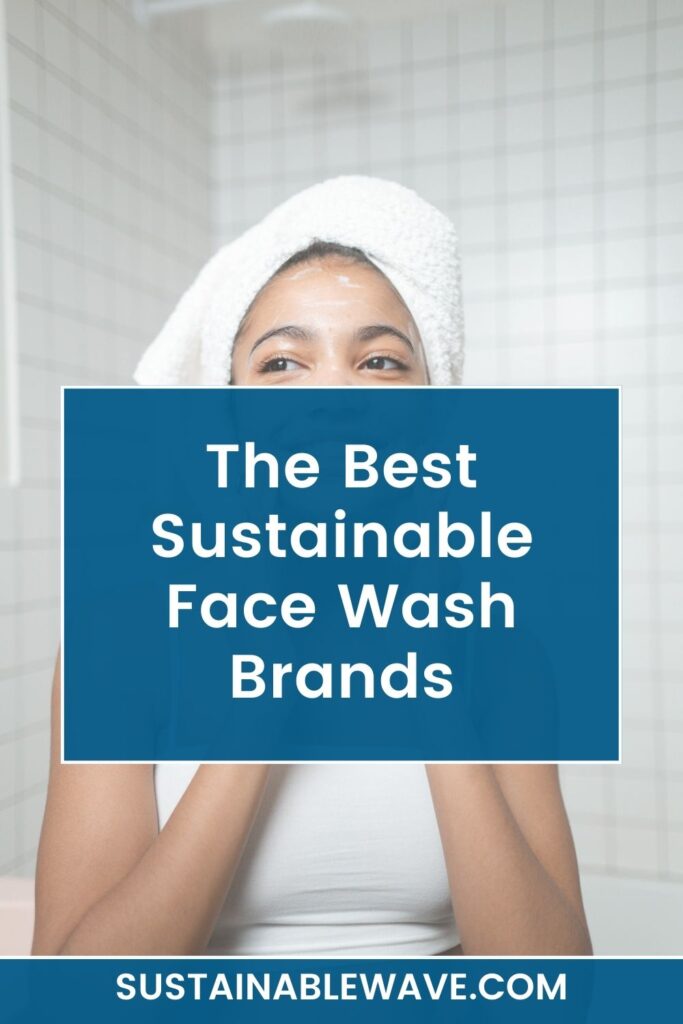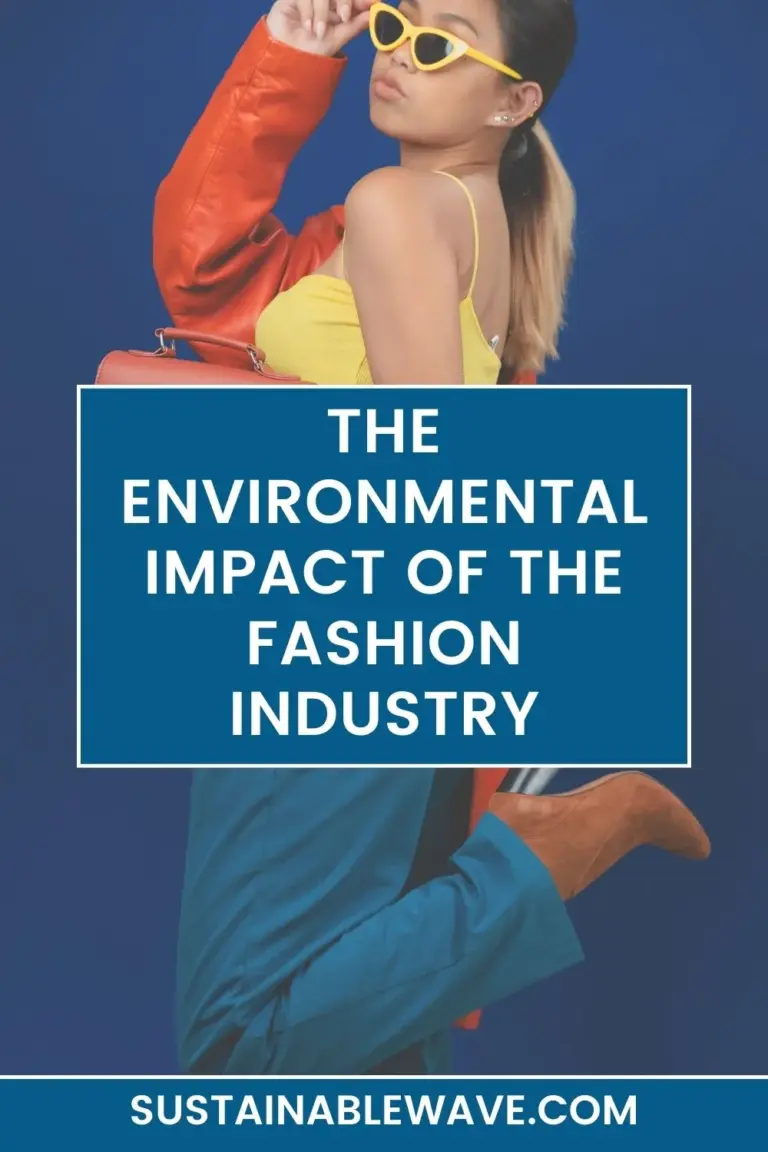Navigating the realm of skincare can be daunting, especially when trying to marry your personal beauty needs with environmental considerations. But fear not, this comprehensive ‘Buying Guide for the Best Sustainable Face Wash Brands’ is here to help.
This guide will delve into everything from understanding the key ingredients to look for and avoid, to assessing a brand’s commitment to sustainability, and even selecting the right face wash for your skin type.
Together, let’s unearth how we can nurture our skin with kindness and contribute to a healthier planet at the same time.
Best Sustainable Face Wash Brands
When it comes to finding the best sustainable face wash brands on the market currently, I’ve done the homework for you.
Here we list some of the best sustainable face wash brands currently on the market, along with their standout features.
Ethique Bliss Bar Gentle Solid Face Cleanser

Its strength lies not only in its performance but also in its longevity. This bar lasts remarkably longer than liquid alternatives, making it a smart choice for both your wallet and the environment. It’s the perfect fit for sensitive skin types as well. I’ve had no reactions or allergies, a testament to its non-irritating formula.
The eco-conscious ethos of Ethique is apparent in its zero-waste packaging. I love that the Bliss Bar comes in minimal, recyclable wrapping, aligning perfectly with my mission to reduce single-use plastics.
The bar’s size can be a minor issue, as it is larger than expected. This can make it slightly awkward to handle during application. However, cutting the bar into smaller pieces easily solves this. Another minor concern was that the product received had a near-expiry date. It would be ideal if Ethique ensures that the products sold have a longer shelf-life.
The pros of the Ethique Bliss Bar Gentle Solid Face Cleanser far outweigh its minor cons. It’s an excellent sustainable choice for any skincare routine, promising effective cleansing without compromising on eco-friendliness.
Pros:
- Gentle yet effective cleansing
- Excellent for sensitive skin
- Long-lasting
- Zero waste, recyclable packaging
Cons:
- Large size can be slightly unwieldy
- Check the expiry date on receipt of the product
Buying Guide For Sustainable Face Wash Brands
A revolution is taking place in the skincare industry, and it’s not just about producing products that make your skin glow.
The new wave of skincare is all about sustainability – creating products that are good for you and the planet.
This segment focuses on guiding you on what to look for when buying sustainable face wash brands.
Understanding Sustainable Skincare
Sustainable skincare refers to a holistic approach to skincare, which considers not only the effectiveness of products on the skin but also the impact they have on the environment. This approach encompasses everything from the sourcing and production of ingredients to the packaging and disposal of the final product.
Sustainable skincare brands often prioritize the use of natural and organic ingredients that are safe for the skin and the environment. They aim to minimize the use of harmful chemicals that can have detrimental effects on the environment when they are washed down the drain and end up in our water systems.
These brands also focus on the ethical sourcing of ingredients, ensuring they are harvested sustainably and that the people involved in their production are treated fairly.
Furthermore, sustainable skincare brands pay particular attention to their packaging, favoring materials that are recyclable, biodegradable, or reusable over single-use plastics.
The sustainable skincare movement is about making conscious choices, prioritizing companies that are transparent about their practices, and supporting the well-being of the planet alongside delivering effective skincare.
The Importance of Sustainable Skincare
Sustainable skincare is important for several reasons:
- Environmental Impact: Traditional skincare products often contain harmful chemicals that can pollute our water systems and harm aquatic life. Moreover, the beauty industry contributes significantly to plastic pollution, with billions of units of packaging ending up in landfills and oceans each year. Sustainable skincare brands strive to minimize these impacts.
- Health Considerations: Many conventional skincare products contain potentially harmful ingredients like parabens, phthalates, and synthetic fragrances, which can cause health issues ranging from skin irritation to hormone disruption. Sustainable skincare products typically contain safer, more natural ingredients.
- Social Responsibility: Sustainable skincare brands often prioritize ethical sourcing, ensuring that their ingredients are harvested in a manner that doesn’t exploit people or deplete resources.
- Biodiversity Conservation: By sourcing ingredients responsibly and avoiding those that contribute to habitat destruction (like palm oil), sustainable skincare brands help to conserve biodiversity.
By choosing sustainable skincare, you are not only caring for your skin but also contributing to a more sustainable and just world.
Breaking Down The Labels

Navigating the world of sustainable skincare can be tricky, with many brands using terms like “natural,” “organic,” and “eco-friendly” on their labels.
But what do these labels actually mean?
- Natural: This term implies that the product is made from ingredients found in nature, as opposed to synthetic ones. However, there is no standard definition or regulation of the term “natural” in skincare, so it can sometimes be misleading.
- Organic: Organic products are made from ingredients grown without the use of synthetic fertilizers, pesticides, or genetically modified organisms (GMOs). To be sure a product is truly organic, look for certification labels like USDA Organic or ECOCERT.
- Cruelty-Free: This label means that the product and its ingredients have not been tested on animals. Look for certifications like the Leaping Bunny or PETA’s Cruelty-Free logo for assurance.
- Vegan: Vegan products do not contain any ingredients derived from animals, including honey, beeswax, lanolin, collagen, albumen, carmine, cholesterol, and gelatin.
- Eco-friendly/Biodegradable: These terms suggest the product will have minimal impact on the environment. However, like “natural,” they’re not strictly regulated, so it’s worth researching a brand’s practices to verify their claims.
- Fair Trade: This label indicates that the ingredients have been sourced in a way that ensures fair payment and working conditions for farmers and workers.
Understanding these labels can help you make informed decisions about the products you choose and support the type of practices you want to see more of in the beauty industry.
Ingredients to Look for in Sustainable Face Wash Brands
When selecting a sustainable face wash brand, you should be mindful of the ingredients the product contains. Sustainable face wash brands often use natural and organic ingredients that are not only beneficial for your skin but also have a minimal environmental footprint. Here are some ingredients to look out for:
- Aloe Vera: Known for its soothing and moisturizing properties, aloe vera is a staple in many skincare products, including face washes. It’s an excellent ingredient for those with sensitive skin.
- Tea Tree Oil: This natural ingredient is renowned for its antibacterial and anti-inflammatory properties. It’s particularly effective in face washes designed for acne-prone skin.
- Glycerin: Often derived from plant sources, glycerin is a fantastic moisturizing agent. It helps to hydrate the skin and maintain its natural moisture balance.
- Green Tea Extract: Loaded with antioxidants, green tea extract helps to protect your skin from environmental damage and is especially beneficial in anti-aging products.
- Jojoba Oil: An excellent moisturizer, jojoba oil closely mimics the skin’s natural sebum, making it suitable for all skin types.
When selecting sustainable face wash brands, opt for those that utilize naturally derived, organic, and sustainably sourced ingredients. The use of these ingredients reflects the brand’s commitment to environmental care and the well-being of your skin.
Ingredients to Avoid in Sustainable Face Wash Brands
As crucial as it is to know what to look for, it’s equally important to be aware of ingredients to avoid when choosing a sustainable face wash brand. Many traditional skincare products contain harmful ingredients that could negatively impact your health and the environment.
Here are some ingredients to steer clear from:
- Parabens: Commonly used as preservatives in skincare products, parabens are a group of chemicals that have been linked to hormonal disruption and can also harm aquatic life when washed down the drain.
- Sulfates: Sulfates, such as Sodium Lauryl Sulfate (SLS) and Sodium Laureth Sulfate (SLES), are commonly used as foaming agents. However, they can strip the skin of its natural oils, causing dryness and irritation. Additionally, their production process can lead to the release of carcinogenic byproducts.
- Phthalates: Used as solvents and plasticizers, phthalates have been linked to hormonal disruption and reproductive toxicity. Plus, they are not biodegradable and can accumulate in the environment.
- Microbeads: Tiny plastic particles are often used for exfoliation, microbeads are a significant contributor to ocean pollution. Opt for products that use natural exfoliants like oatmeal or sugar instead.
- Synthetic Fragrances: Often simply listed as “fragrance” or “parfum,” synthetic fragrances can contain a cocktail of chemicals, some of which are allergenic or potentially harmful. Opt for products scented with natural essential oils.
Sustainable Packaging: More than Just Recyclable
When it comes to sustainability, the packaging is just as important as the product itself. A truly sustainable face wash brand will use packaging that has minimal environmental impact.
Here’s what to look for:
- Recyclable Materials: The use of recyclable materials, such as glass, aluminum, or certain types of plastic, is one way brands can reduce their environmental impact. Check to see if the packaging is marked with a recycling symbol.
- Biodegradable Packaging: Some brands take it a step further by using biodegradable packaging, which can break down naturally without leaving harmful residues.
- Refillable Systems: A growing number of brands are offering refillable systems, where you buy the product once and then purchase refills, reducing the amount of packaging waste.
- Minimal Packaging: Look for brands that use minimal packaging. Over-packaging is a significant waste contributor, and opting for brands that use less can make a big difference.
Remember, sustainability is a journey, not a destination. So, while you might not find a face wash brand that checks all these boxes, choosing one that aligns as closely as possible with these criteria is a step in the right direction.
The Impact of Sourcing and Manufacturing Processes
The sourcing and manufacturing processes of skin care products have a significant impact on their overall sustainability. Sourcing refers to how the ingredients are obtained, while manufacturing refers to how the product is produced.
Sustainable sourcing means that ingredients are grown and harvested in a manner that is respectful of the environment and the people involved. For example, it avoids ingredients that contribute to deforestation or deplete resources, and it ensures that workers are paid fair wages and work in safe conditions.
The manufacturing process, on the other hand, refers to the actual production of the product. Sustainable manufacturing practices might include using renewable energy, minimizing water usage, reducing waste, and avoiding harmful chemicals.
By prioritizing brands that are transparent about their sourcing and manufacturing processes, you can support practices that have a smaller environmental footprint and contribute to social equity.
Assessing Company Values and Commitment to Sustainability
When choosing a sustainable face wash brand, it’s important to look beyond the product itself and consider the company’s values and commitment to sustainability.
A truly sustainable company will integrate sustainability into all aspects of their business, from their mission statement to their daily operations. This can be seen in their efforts to reduce their carbon footprint, their commitment to ethical sourcing, their use of sustainable packaging, and their involvement in environmental or social initiatives.
Look for companies that are transparent about their practices and policies and that are certified by reputable organizations. These certifications provide third-party validation of a company’s claims, helping you to make an informed decision.
The Role of Vegan and Cruelty-Free Products in Sustainability
Vegan and cruelty-free products play a significant role in sustainable skincare. Vegan products do not use any animal-derived ingredients, which is not only kinder to animals but also better for the planet. Animal agriculture, including the production of animal-derived ingredients, is a major contributor to greenhouse gas emissions, deforestation, and water pollution.
Cruelty-free products, on the other hand, do not involve animal testing, which is not only inhumane but also unnecessary, given the availability of alternative testing methods.
By choosing vegan and cruelty-free products, you can contribute to a more compassionate and environmentally friendly beauty industry.
The Price Tag: Balancing Cost and Sustainability

One of the challenges of sustainable skincare is the cost. Sustainable products often come with a higher price tag due to the cost of sourcing high-quality, organic ingredients and implementing sustainable manufacturing processes.
However, it’s important to consider the true cost of a product. While conventional products may be cheaper upfront, they can have hidden costs, including health issues caused by harmful ingredients and the environmental cost of pollution and resource depletion.
By investing in sustainable products, you are investing in your health and the health of the planet. Moreover, as demand for sustainable products grows and more companies adopt sustainable practices, prices are likely to decrease.
Checking for Certifications
Certifications can be a useful tool for assessing the sustainability of a face wash brand. These are awarded by third-party organizations that verify a company’s claims. Here are some certifications to look out for:
- USDA Organic: USDA Organic ensures that a product is made from at least 95% organically produced ingredients.
- ECOCERT: ECOCERT guarantees that a product meets strict standards for natural and organic cosmetics, including environmentally friendly production processes and packaging.
- Leaping Bunny: Leaping Bunny is a globally recognized certification that guarantees a product and its ingredients have not been tested on animals.
- Fair Trade Certified: Fair Trade certification ensures that the ingredients have been sourced in a way that promotes sustainable development and provides better trading conditions for farmers and workers.
Remember, while certifications can be helpful, they are not the be-all and end-all. It’s also important to research the brand’s practices and values to get a fuller picture of their commitment to sustainability.
Choosing the Right Sustainable Face Wash for Your Skin Type
Choosing the right sustainable face wash isn’t just about finding a brand that aligns with your environmental and ethical values; it also involves finding a product that suits your specific skin type.
- Normal Skin: If your skin is neither too dry nor too oily, you can opt for a gentle, balanced face wash. Ingredients like aloe vera, chamomile, or cucumber can provide soothing and hydrating effects.
- Dry Skin: If you have dry skin, look for a moisturizing face wash. Ingredients like shea butter, avocado oil, and hyaluronic acid can help to nourish and hydrate the skin.
- Oily Skin: If your skin is oily, you’ll want a face wash that can help to balance oil production without stripping the skin. Ingredients like tea tree oil, witch hazel, or salicylic acid can help to control oil and prevent breakouts.
- Sensitive Skin: For sensitive skin, choose a face wash that is free from potential irritants like synthetic fragrances and dyes. Ingredients like chamomile, calendula, and aloe vera are known for their soothing properties.
- Mature Skin: If your skin is mature or you’re concerned about signs of aging, opt for a face wash with anti-aging ingredients like vitamin C, retinol, or hyaluronic acid.
By choosing a face wash that suits your skin type, you can ensure that your skincare routine is not only sustainable but also effective.
How to Make Your Skincare Routine More Sustainable
Beyond choosing sustainable face wash brands, there are several other ways you can make your skincare routine more sustainable:
- Reduce: Consider simplifying your skincare routine by using fewer products. Not only can this be better for your skin, but it also reduces the amount of packaging waste and the energy and resources used to produce and transport these products.
- Reuse: Choose products with reusable packaging. Some brands offer refillable options or encourage consumers to repurpose their containers.
- Recycle: Ensure you are recycling your skincare packaging correctly. Some components, like pumps and caps, need to be recycled separately, and some materials, like glass and metal, can be recycled indefinitely.
- DIY: Consider making your own skincare products using natural ingredients. This can be a fun and rewarding way to reduce packaging waste and control exactly what goes onto your skin.
- Buy Local: Support local skincare brands to reduce the carbon footprint associated with shipping products.
Zero-Waste Face Wash – What You Should Know
A zero-waste face wash could be the answer to reducing your environmental footprint.
Zero-waste face wash products are designed to produce minimal waste, often packaged in recyclable or compostable materials, and sometimes even sold in bulk to avoid packaging altogether.
Not only do they align with a sustainable lifestyle, but they often contain natural, non-toxic ingredients, making them a healthier choice for your skin too.
Choosing a zero-waste face wash is an actionable step towards a greener beauty regimen, demonstrating that environmental consciousness and effective skincare can coexist beautifully.
Refillable Face Wash – Getting Started
Embracing refillable face wash is a fantastic way to uphold sustainability in your skincare routine. These products are designed with reusable packaging that can be refilled, effectively reducing the amount of single-use plastic waste.
Starting with refillable face wash is as simple as purchasing the initial product and then ordering refills as needed.
Brands offering refillable options often ensure that the refill process is straightforward, making your shift towards sustainable skincare as seamless as possible. Through this small yet impactful action, we can help cut down on waste, paving the way toward a more sustainable future.
The Future of Sustainable Skincare
The future of sustainable skincare is bright, with more and more brands recognizing the importance of sustainability and consumers becoming increasingly conscious of their purchasing decisions.
In the future, we can expect to see more innovations in sustainable packaging, from biodegradable materials to refillable solutions. Brands are also likely to become more transparent about their sourcing and manufacturing processes, and certifications for sustainable and ethical practices will become even more prevalent.
In addition, as research continues to advance, we will see the development of more effective, natural skincare ingredients that are kind to our skin and the planet.
The move towards sustainable skincare represents an exciting shift in the beauty industry, one that values the health of our skin, our communities, and our planet. It’s a journey that we are all a part of, and every small step we take toward sustainability makes a difference.
FAQs
What does it mean for a face wash brand to be sustainable?
A sustainable face wash brand is one that focuses on minimizing its impact on the environment. This can be through the use of eco-friendly ingredients, sustainable packaging, ethical sourcing, and manufacturing practices, and by supporting environmental initiatives.
Why should I switch to sustainable face wash brands?
Switching to sustainable face wash brands is beneficial for both your skin and the environment. These brands often use natural and organic ingredients that are less harmful to your skin. Moreover, they reduce the amount of waste and pollution caused by the beauty industry.
Are sustainable face wash brands more expensive?
While some sustainable face wash brands may have a higher price point due to the use of quality ingredients and sustainable packaging, many affordable options on the market are both good for your skin and the environment.
Are all “natural” or “organic” face washes sustainable?
Not necessarily. While a product may be labeled as “natural” or “organic,” it doesn’t automatically mean it’s sustainable. It’s essential to consider other factors like packaging, sourcing, and manufacturing processes.
Can I make my own sustainable face wash?
Yes, making your own face wash can be a fun and sustainable option. However, be sure to research and use skin-friendly, eco-friendly ingredients. Remember, what works for others may not necessarily work for you.
What certifications should I look for in a sustainable face wash brand?
Look for certifications such as USDA Organic, Ecocert, Fair Trade Certified, Leaping Bunny (cruelty-free), and B Corp among others. These certifications indicate that the brand has met certain standards for sustainability.
Conclusion

Switching to sustainable face wash brands is not just a trend, it’s a lifestyle choice – a choice that benefits your skin and the environment.
We hope this comprehensive guide helps you make informed decisions on your journey to a greener skincare regimen.
I’m Thomas, the owner of SustainableWave. Passionately promoting a sustainable planet. With experience in various eco-roles, I’ll share green tips, sustainability hacks, and personal eco-journeys on my blog.




